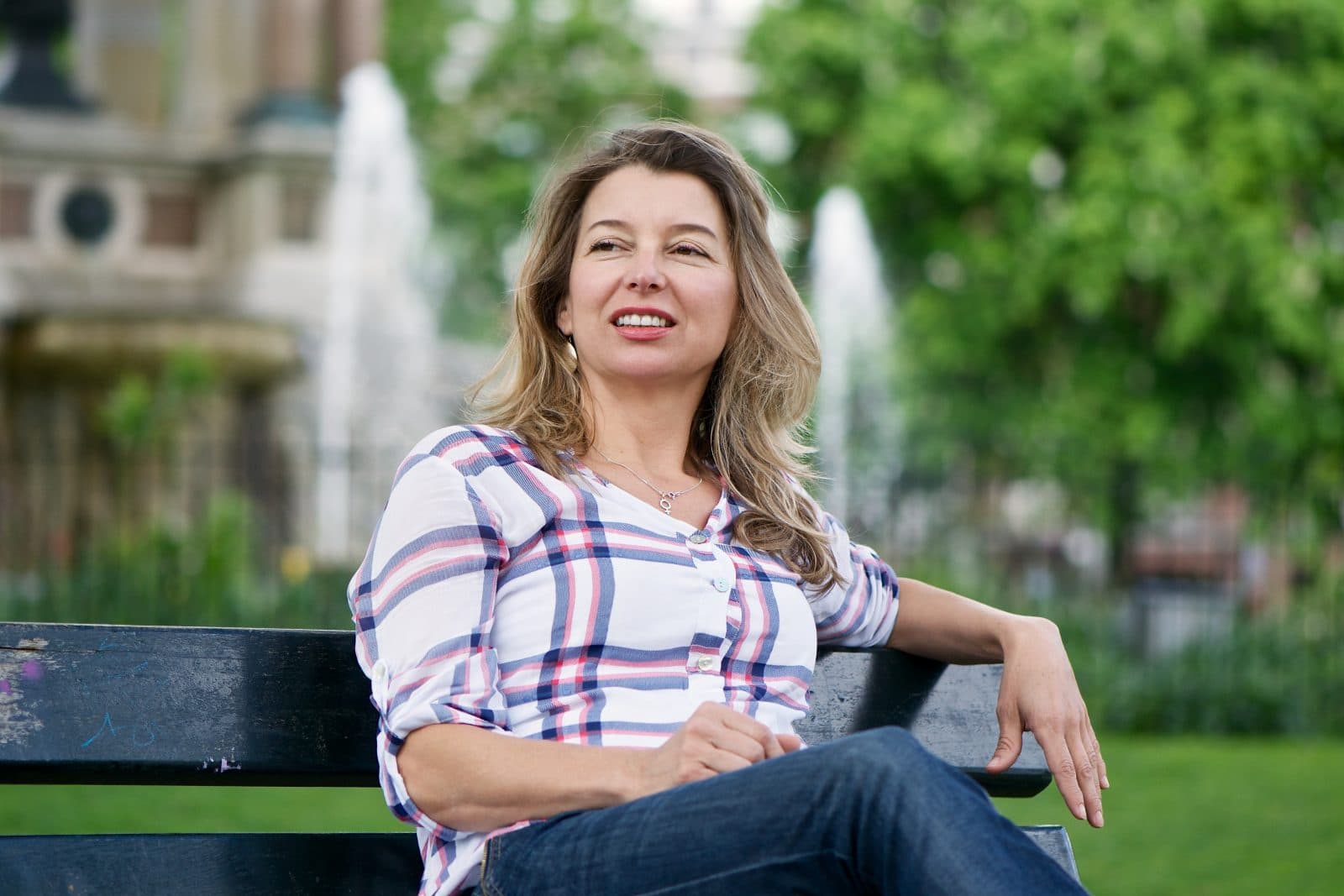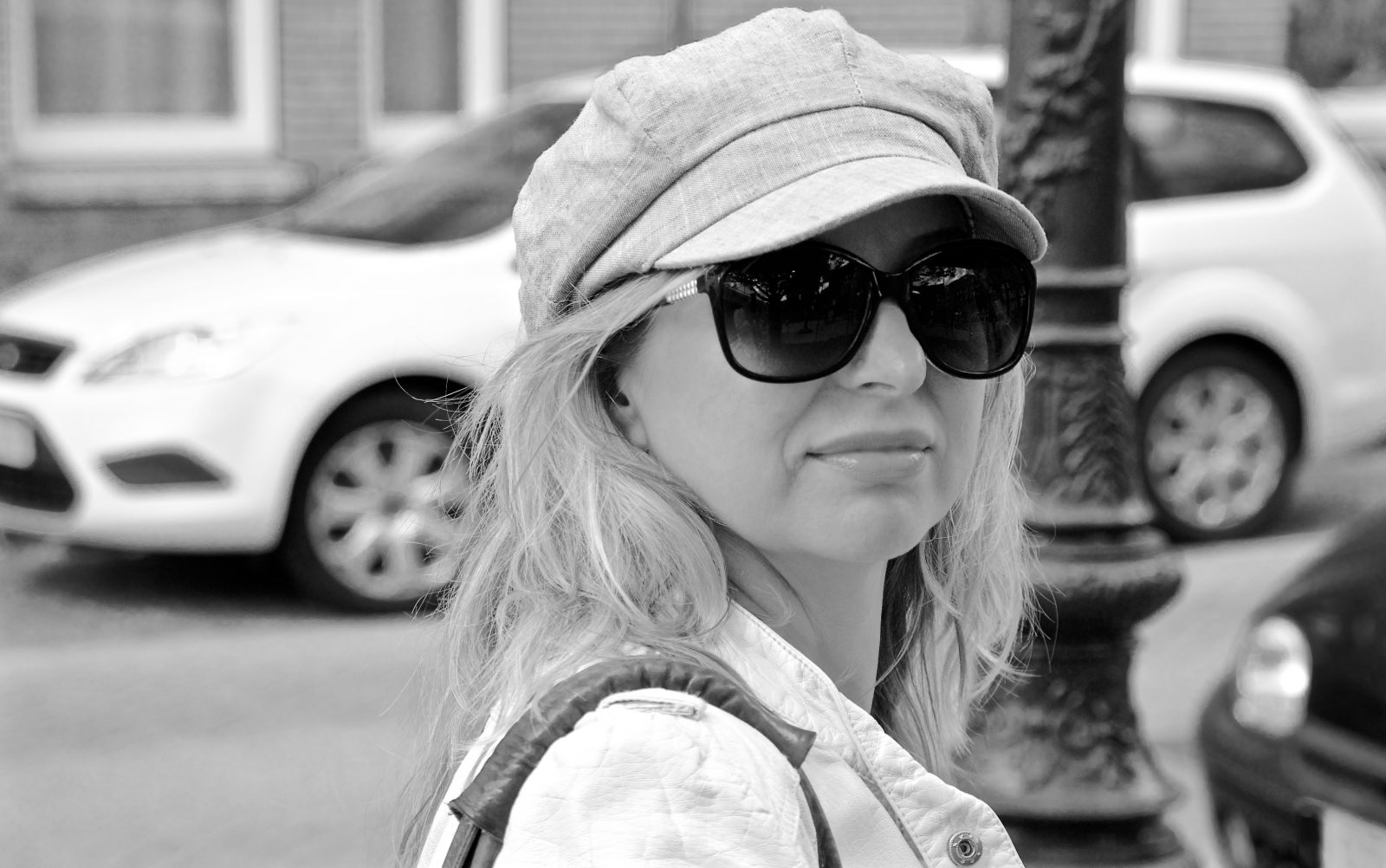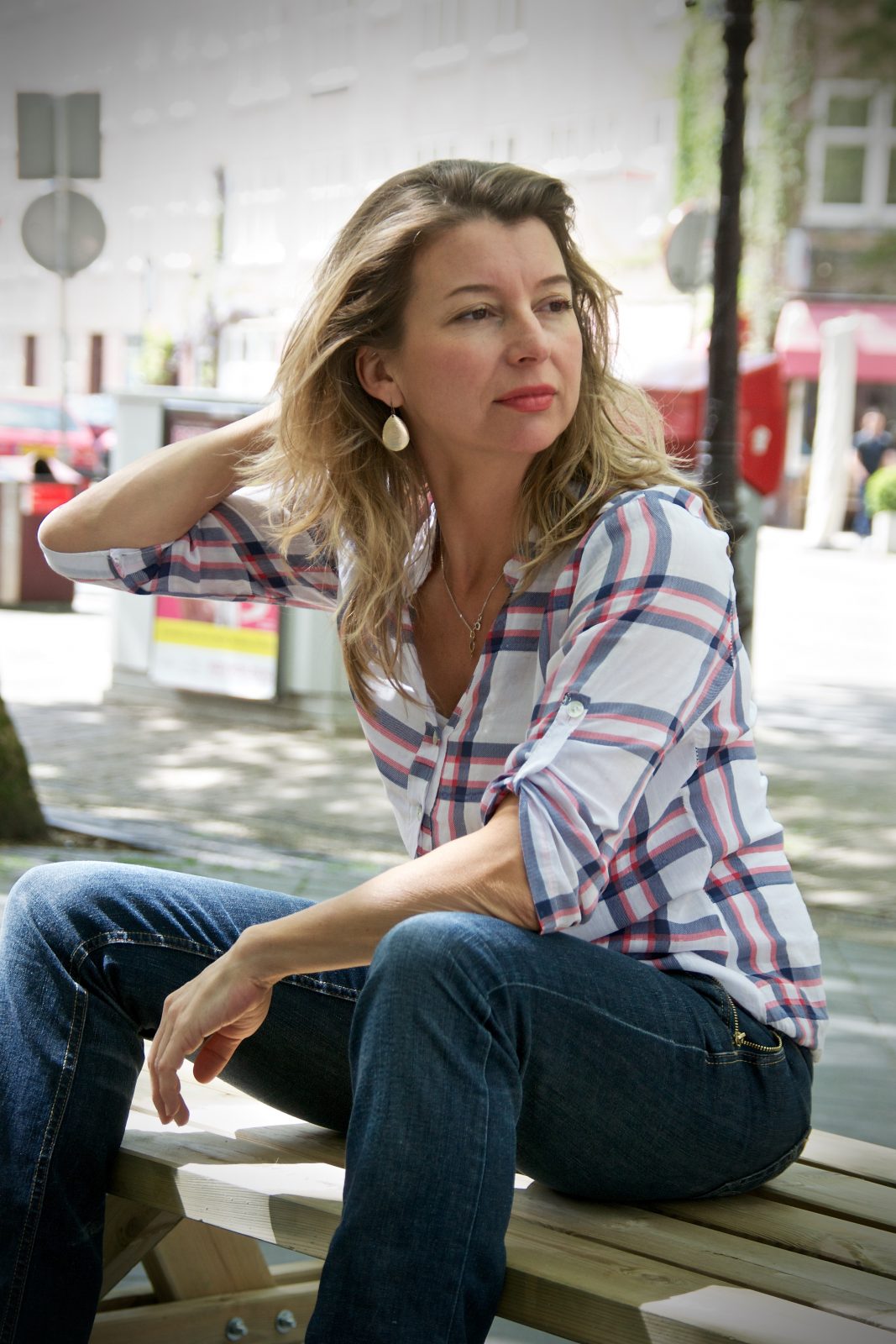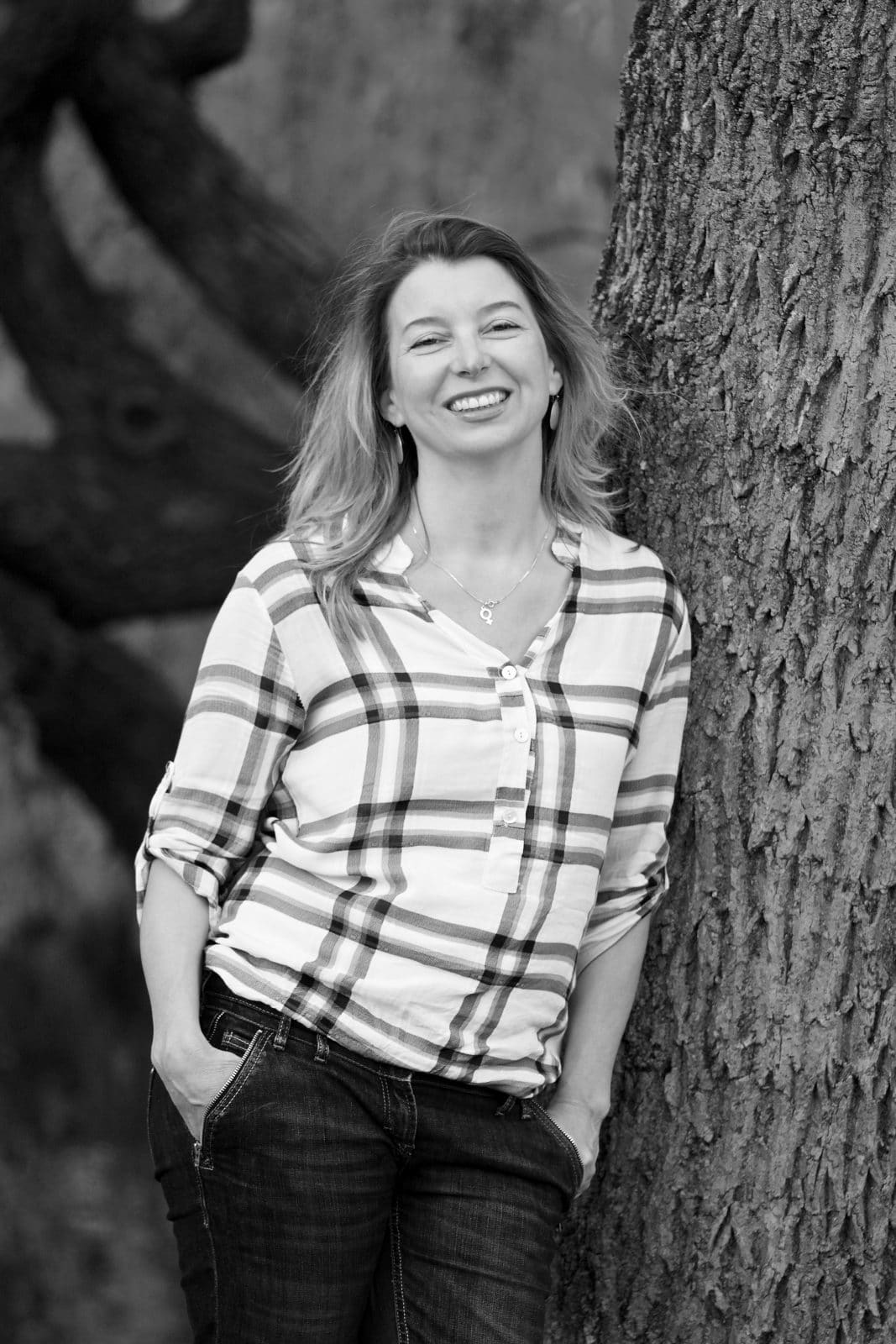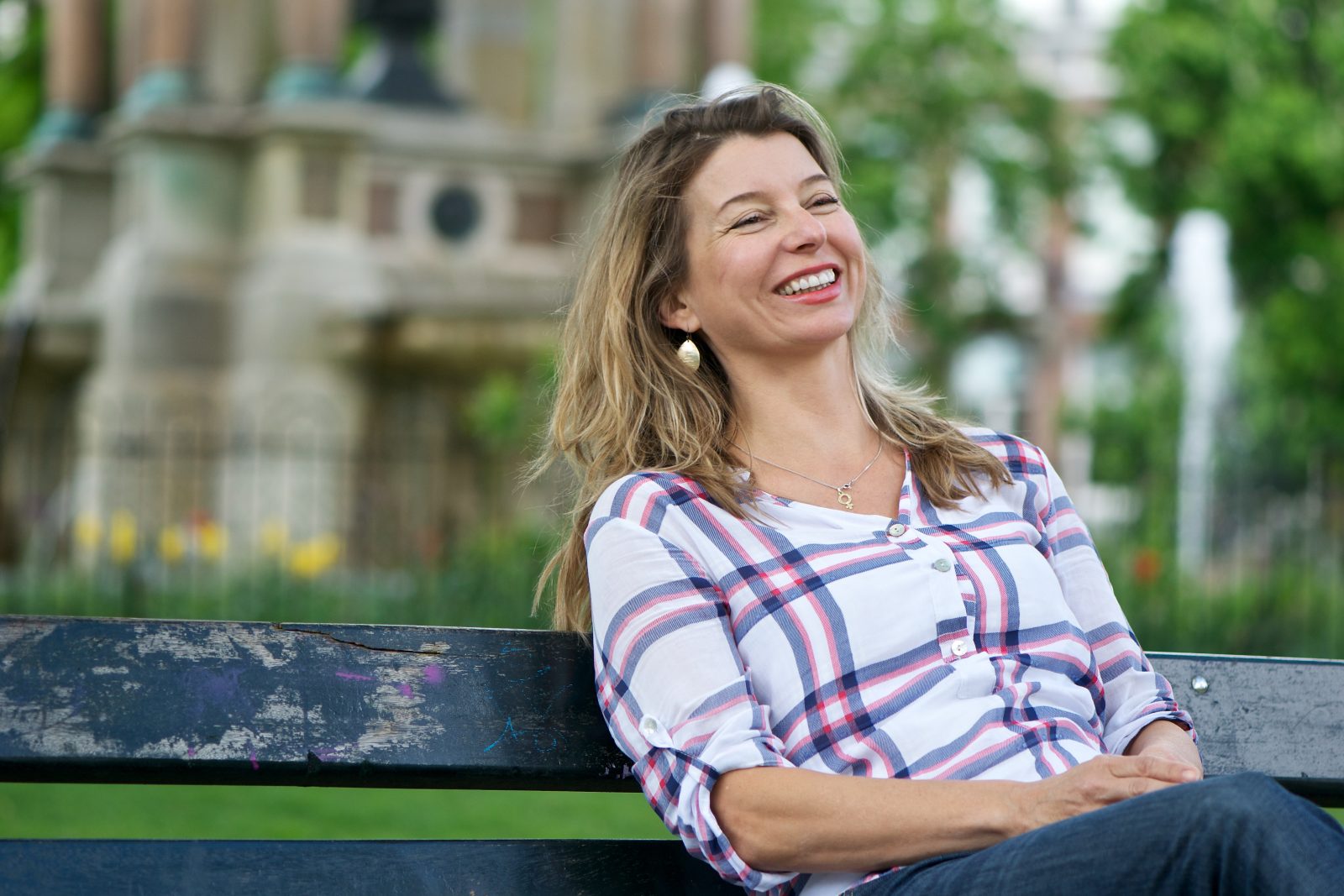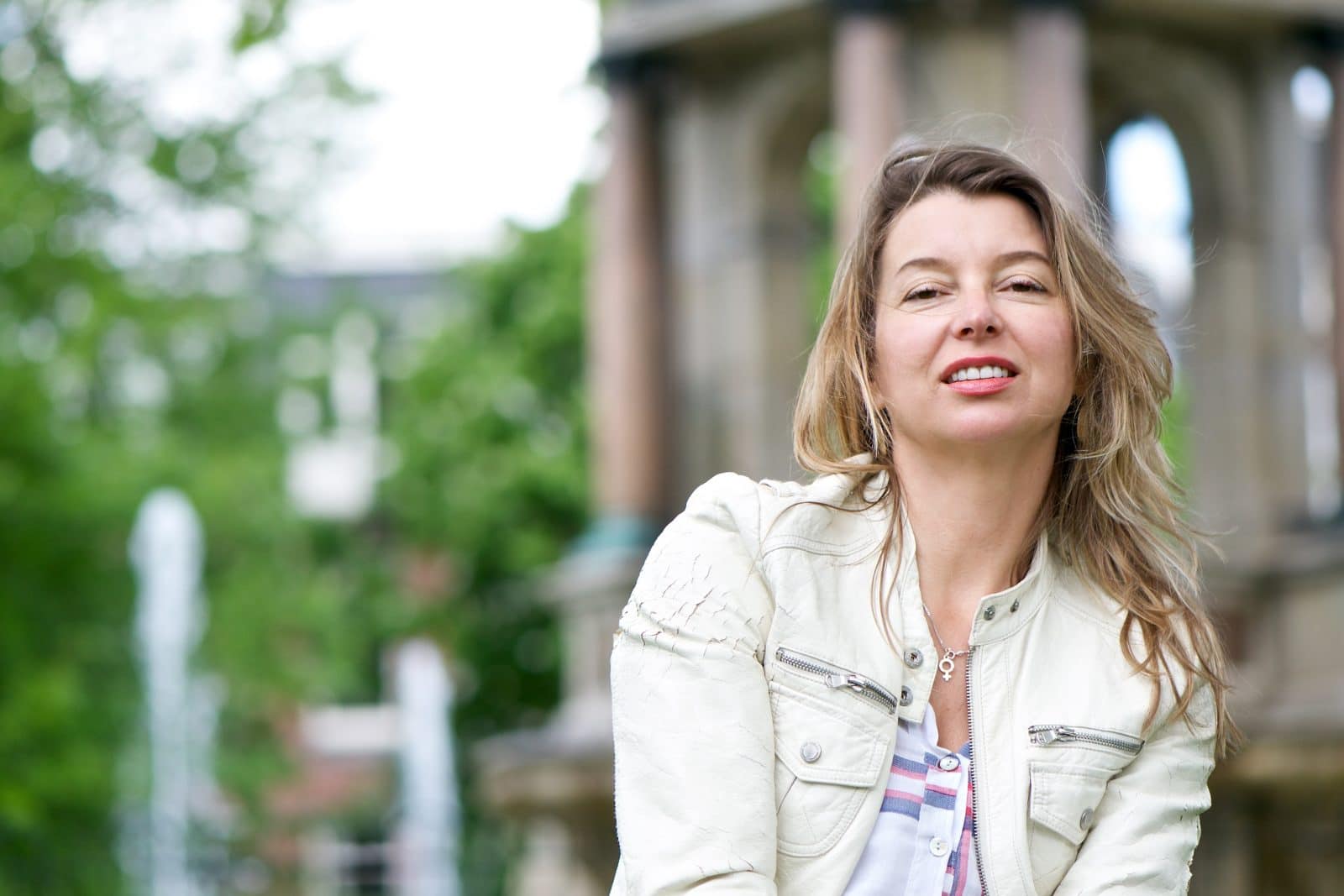'See, that's how it goes.' Esther Ending flips open a magazine containing an interview following her new novel An island of its own, which is set on Ibiza, the island where she grew up. The article is not about her novel but, unbeknownst to her, is part of a story about partying, drinking and drug use.
[Tweet "Everyone just wants to know how bad the upbringing of those hippy parents was."]
'Now it just seems like I was a bit drained: well, then I took a line of coke, and then a pill. When you live in Ibiza you usually start doing drugs young, but I have not been a drug person at all. In my novel, I showed a dark side of Ibiza, but that is only one side of the story. The media mainly highlights that side. Everyone just wants to know how terrible it was, how bad the upbringing of those hippie parents was. Yes, there were negative sides to it, but also many positive ones. Some aspects of my childhood I remember like a fairy tale. I miss nature and the outdoors. The beauty. As children, we didn't need anything, we had our imagination. I don't want to go back to the island for nothing - I was very happy there.'
An island of its own is after After Valentine's Day and Silent people Endings third novel. The book is about 17-year-old Marianne, who stays alone in her father's large villa. He has once again been arrested for a drug deal. Things are serious: her father will not be released for the time being and Marianne has to leave the villa.
Impossible
Marianne's mother lives on neighbouring Formentera and is especially busy with her spiritual development. In short, Marianne is left to her own devices, losing herself in meaningless sex, booze and other narcotics. Things get even more tense when she becomes obsessed with an agent of the Guardia Civil - the absolute enemy of almost everyone on the island, but especially those who don't play by the rules. But Marianne puts herself, as well as her father, in an impossible position.
The excitement of An island of its own are the sharp contrasts Esther Ending sets out in it. The booze and drugs versus the beauty of nature, for example, or of children acting like adults surrounded by irresponsible parents who just don't want to grow up. A wind of freedom and promise blows over the island, but also one of pervasive fear of the stern Guardia Civil. And Marianne's beauty, youth and intelligence are at odds with her self-destructive behaviour. Dark and heavenly: these two sides can be found at all levels in the story.
Autobiographical
Until she was twenty-two, Esther J. Ending (b. 1972) lived in the non-touristy north of the Spanish island, which has become legendary for all the celebrities, hippies and spiritual fortune seekers who stayed there. Yes, her parents were hippies; yes, she rode motorbikes as a teenager. But apart from some fictionalised events in the story, the similarity to her own life pretty much ends there, she says. 'Everyone assumes the story is entirely autobiographical because it is set in Ibiza. Reviews even adjust my main character's age to match mine. That goes a long way. People don't even wonder, no, it ís so. Of course, like any writer, I use things from my own life. But eighty per cent of the story is made up.'
She takes a puff of her e-cigar, the red tip lighting up briefly. As she lets the smoke escape from her mouth, she squeezes her eyes into squares at the memory of the event that was the seed for the novel: the encounter with a Guardia Civil. With an áárdige Guardia Civil, that is. 'I was stopped on a motorbike, I was about 15 or 16 years old. Is that young? Actually, I don't even know what exactly was allowed. Quite a lot of people, including parents of ours, were driving without a licence. I had my first moped when I was twelve. You needed that to get anywhere, because there were hardly any buses.
I was stopped so, and did not have my papers in order. That was not good, but this man acted very nice and let me go. When I bumped into him again later, he flashed his lights once as a sign of recognition. That really surprised me: gosh, he's a nice man.
Pass
The fear of the Guardia Civil was very deep, in everyone, even today. This dates back to the days of dictator Franco, who was supported by much of the Guardia Civil. My Madrid stepfather - not a frightened man - was also terrified of them. Once, when he was taken away for not carrying his identity card, my mother, a Dutch woman, went to pick him up. There she came into the Guardia Civil building barefoot: where is my husband! I have a pan of soup on the gas, we are waiting to eat. Why pass! Here with my husband! My stepfather was completely in shock that she had dared to do that.'
Were they such bullies?
'Yes. A friend of mine once looked at one of those cops apparently not in the right way and got slapped in the face. And when we were searched and had to empty our pockets on top of a car, one of my friends was grabbed from behind by his balls. Such things they did. The Guardia Civil was scary. I clearly remember them coming to our house. bam bam bam on the door, 'open up, guardia civil! They were looking for the neighbour, who had a few cannabis plants in the garden, and searched the whole house, including the children's rooms, everything went off the shelves. Things were going hard.
Twice I fled from them. The first time, I was riding a moped. They couldn't catch me, because their bmw motorbikes are not suitable for dirt roads and we knew all those dirt roads like the back of our hand - that was the way to make sure you were never stopped. By the way, I totaled the moped in that chase.
Adrenaline
The second time, I managed to get away well again. A week or two later, I was standing outside a café, when suddenly two Guardia Civil motorbike cops drove by. My saddle was recognisable because made of fabric. One of the two rode just slowly enough to say to me, "Next time I'll catch you." They were obviously heading for an incident, otherwise I would never have got away with it, but I have rarely had such an adrenaline rush. Pure fear.'
So when you live on that island, are you always on your guard?
'Yes... That's why I found it such an exciting underground, because of the contrast with that freedom. When I was stopped that time and the policeman was being nice to me, I suddenly realised: he is also just a normal man. What would it be like to sit at the table with someone like that and have a conversation? That was the seed for this book.
For my research, I went to the Guardia Civil. I wanted to know certain factual things, such as whether it is credible that a Guardia does not live in the barracks, like the man in my book. To combat corruption, Guardias are never placed near where they grew up and usually move somewhere else every few years. It turned out that officers can choose to stay somewhere longer. Indeed, sometimes they live in a flat and very occasionally in a finca, a typical Spanish country house outside the barracks, but most do live in the barracks, as it is free. The families also live there.
Gypsy life
When asked about barracks life, they responded defensively. I did not find out why they chose such a life. The profession often passes from father to son, especially in the past. Children of Guardians are used to that gypsy life.'
The Guardia on whom Marianne falls, Ramiro Unzeta Passero, symbolises stability, security and safety - things she herself does not have in her life. She is actually looking for someone to save her.
'Indeed, for me, this story is about very deep loneliness. I never set out to put a message in my book, but what it is about is that we cannot do it alone. I have portrayed a protagonist who knows no better than that she is alone and that this is the way it should be, that this is the way life is. You have nothing to expect from others.
Ramiro also stands for frameworks. As a child, you were forced to set your own boundaries all the time, but that is precisely what parents should help with. Cats even do that with their little ones: do this, don't that.
Therapy
We all suffered from that feeling of being alone. I gave that feeling a story. In a way, Marianne is lucky; at a relatively young age, this thinking error was pointed out to her. 'I only came to realise after years of therapy that it is normal to need others. By then I was in my mid-thirties.'
Before then, did you always keep a certain reserve in your connection with others?
'Yes. Only after therapy could I really open up and interact with others without experiencing anxiety. I always had tremendous anxiety.'
An island of its own thereby also articulates a shared feeling of your generation. The story paints a picture of the times.
'That's right. Someone said to me the other day that there are very few books on this subject, on our generation. I don't want to be a figurehead, but when I talk about it like that, I think why not actually?'
Yes, why not actually?
'Ha ha, that's a good question. Maybe because things are so quickly drawn into the negative - those hippies got it all wrong. But there were good sides too. Our parents were powerful, courageous personalities. It was never boring: both the places they dragged us to and their magical delusions were uncommon and inspiring. No sea was too high. Artistic aspirations were encouraged, which probably contributed to my choice to become a writer. Of course, it is indeed a critical account of my parents' generation. But.
... it often becomes too black and white.
'Exactly. I have yet to figure out what I want to say about it and how I am going to articulate it, so that I can be critical - as I am in my novel - without losing the colours. The point is that people are usually not that interested in a nuanced story.'
A story of freedom and joy on the one hand, and loneliness and unfreedom on the other.
'Indeed. I had to detach myself from my spiritual background. I've always thought it's much harder to break away from a very religious family, because we were still given a certain freedom of thought. But now that we're talking about it like this, I don't really know if that's true. It's a false freedom, and maybe that's even more difficult. Because you are constantly being told: you had freedom of thought, didn't you? Well, actually not. If I asked questions or said I didn't believe in reincarnation that much, I got into arguments with my mother's friends. The adults forced their views on the children. Marianne says to her mother: you want me to have your feelings, but I have my feelings. Our parents believed they had the truth. But if you are supposed to raise your children so freely, at least give others room to think differently. It wasn't really that free. The funny thing in that little world was also: everything and everyone always has to be special. Away from the ordinary. But what's so bad about being ordinary?'
Nice question.
'I was thinking the other day: while writing, you create a world that doesn't exist, you play God in your own world - I know, it's a cliché, but of course it's just true. I find writing very enjoyable and exciting. It's exciting to go into that other world and make it readable for someone else. There are always difficult scenes, sometimes you have to fight for them. But there are also moments, especially with this book, that after a day's work such a scene suddenly appears. That gives a euphoric feeling.
Perhaps with writing I have found a legitimate form of escape from the world without losing myself. Because afterwards, I make a cup of coffee and I'm just Esther - quite a normal person. I am no longer afraid of normality. Less and less.'
[Tweet "Esther J. Ending: 'I'm not afraid of normality anymore'"].
Esther J. Ending - An island of its own (320 p.). Lebowski, €19.99 (paperback)/€9.99 (e-book).
